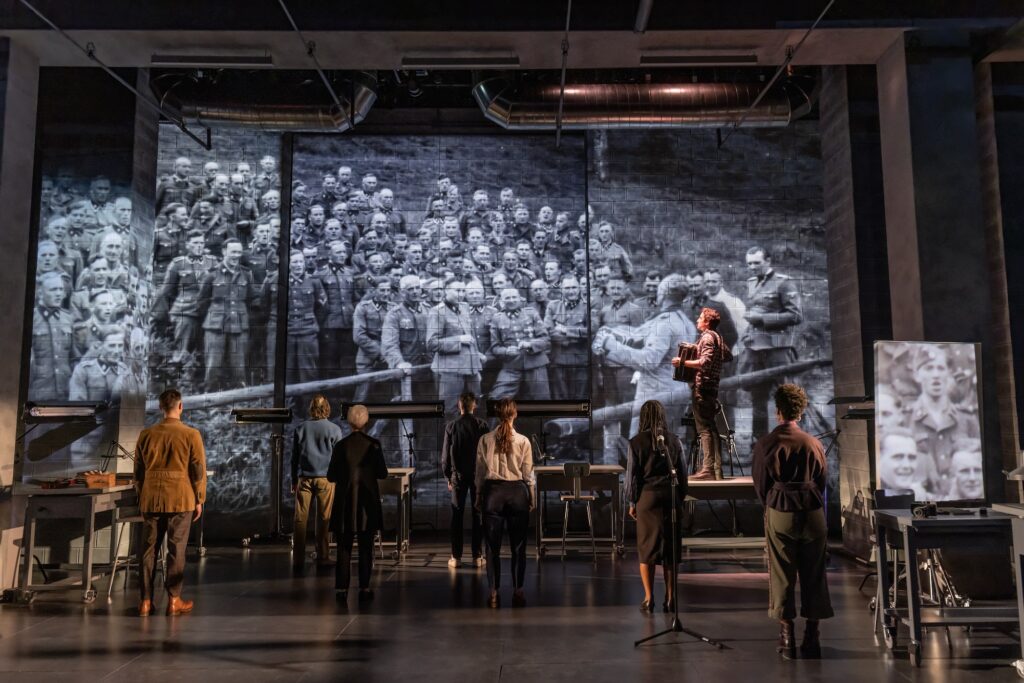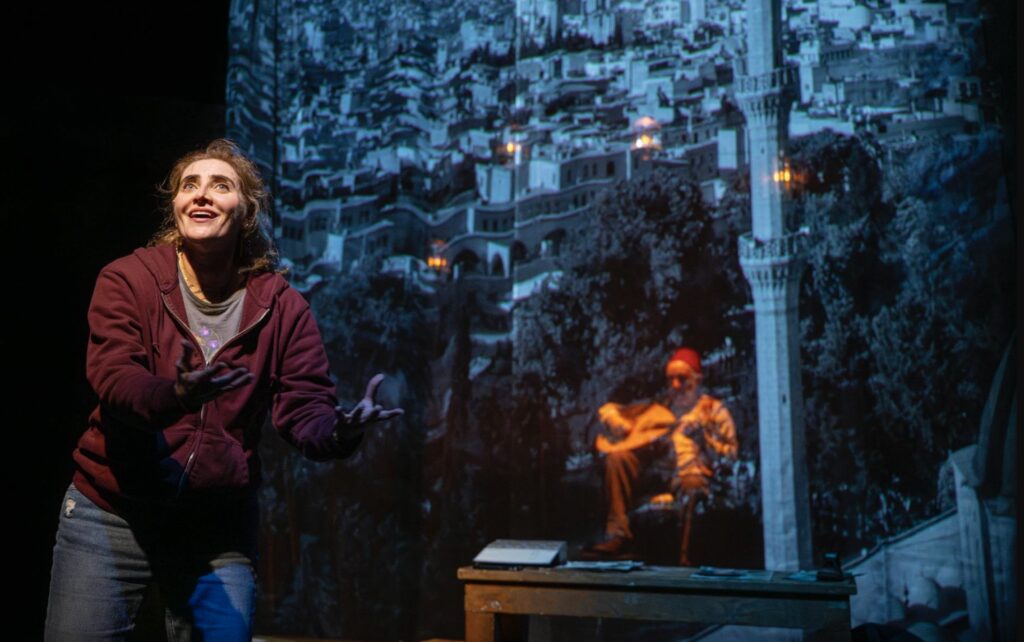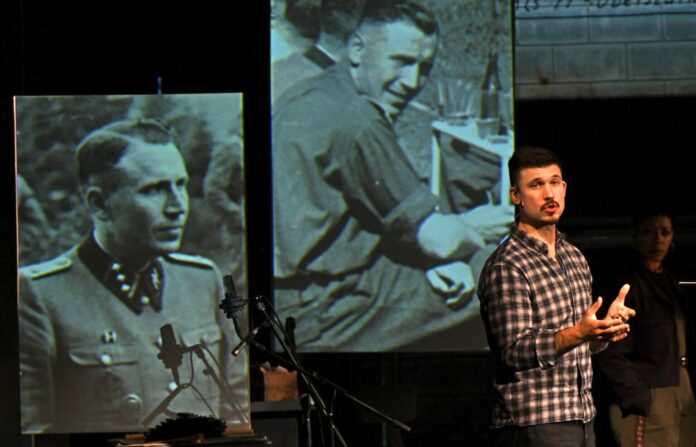What does it take to truly break a cycle? Hindsight reminds us when we should have gone left instead of right, but recognizing past mistakes hasn’t prevented our species from repeating the obvious blunders over and over. Sure, there are hazards we’ll just never see coming, but when something like acid rain—an environmental calamity often associated with the ‘70s and ‘80s—looks dangerously close to making a return, one has to wonder if we’re all just living out a species-wide Darwin Awards ceremony.
In fairness, things like environmental disasters (and, y’know, the resurgence of fascism) owe a lot to powerful sociopaths who won’t even consider the wider effects of their actions. But part of the blame still lies at our feet for continuing to give power to those who want noting but more power. Humanity’s known for some time that there are more of us, the proletariat, than there are of them, oligarchs, but the masses continue to support the people who want the masses wiped out—from the serfs supporting the futility of the Crusades, to flag-wavers supporting conflicts in Viet Nam and the Middle East, to everyone who still drives around in a Swastikaar.
As it happens, two current shows are both about the lingering effects of two of humanity’s worst atrocities, and the hope to never see their like again. Given how vehemently those in power are trying to erase or reframe past “mistakes,” the timing of both shows couldn’t be more perfect.

HERE THERE ARE BLUEBERRIES AT BERKELEY REP
All these months later, I still hear that line from Dan Hoyle’s Takes All Kinds. He sits in a Latino barbershop, surprised to find so many MAGA staff all supporting the harsh (even brutal) treatment of immigrants because they don’t consider themselves immigrants. They’ve been successfully indoctrinated into the “not one of them” brainwashing that makes it easier to scapegoat someone else for problems that are usually the result of some rich asshole’s unchecked greed. Those barbers weren’t the first to fall into that trap, nor will they be the last. There was once a failed artist from Austria who convinced all of Germany that slaughtering six million people was good for the economy. How’d that work out?
Laramie Project creator Moisés Kaufman’s latest docu-theatre piece (with Amanda Gronich) doesn’t want to tell another dry story of how horrible the Holocaust was (and it was), but aims to shine a light on how the entire German public normalized and celebrated Nazism with mouth-foaming fervor.
Here There are Blueberries (through May 11 at the Berkeley Rep) dramatizes the testimonies of members of the US Holocaust Memorial Museum upon receiving an unusual addition: a collection of photos from the private collection former Nazi officer Karl Höcker. The photos are of Höcker, his colleagues, and their families smiling and laughing like beach resort guests. There are fun activities and comfortable cabins in nearly every frame.
The Museum archivists soon realize two things: 1) the content of the photos goes against the idea of the humorless Nazi most of us think of; and 2) the “resort” in question is Auschwitz. Yes, that Auschwitz. During the war. Each and every single jovial photo was taken a few steps away from the barbed wire, the laboratories, and the gas chambers.

The dichotomy isn’t lost on archivist Rebecca Erbelding (Delia Cunningham), who debates with her colleagues as to whether to keep and display the collection. They obviously don’t want to venerate the Nazis, but denying their humanity runs the risk of perpetuating the flip side of Goebbels’ propaganda. At the same time, does humanizing the oppressor risk diluting the pleas of the oppressed?
The uncomfortable brilliance of Kaufman and Gronich’s play truly shines when their actors begin reciting and reenacting letters and testimonies from Höcker and his colleagues. There’s an overwhelming sense of pride to be Nazis. All of them speak of it as if it were their life’s ambition, as if no contest prize could ever hold a candle to saluting the swastika. They beam with national honor. It was as easy for them to celebrate in a concentration camp as it is for barbers to shrug at legal citizens being deported or children in Gaza being slaughtered by our tax dollars. “No genocide starts with killing,” Rachel tells us, “Every genocide starts with words.”
Another easily-forgotten part of history is the pandemic still ravaging through humanity. I wonder what part of my wardrobe got more stares, my Flo Mask or my shirt? I’m hard-pressed to recall anyone else who masked, which is disturbing considering most of the audience were elderly. Fortunately, the HVAC for the Rep’s Roda Theatre continues to impress, with my Aranet4’s CO² readings peaking at 684ppm by the final bow. I just wish this continuing health crisis (along with the growing threats of H5N1 and measles) weren’t so easily ignored, but when a blatant Nazi salute is dismissed as an “awkward gesture,” I shouldn’t be surprised.
HERE THERE ARE BLUEBERRIES runs through May 11 at the Berkeley Rep. Tickets and further info here.

AZAD: THE RABBIT AND THE WOLF WORLD PREMIERE BY GOLDEN THREAD
Sona Tatoyan has every right to be angry. The Armenian- and Turkish-descended writer-performer carries the legacy of The Genocide on her shoulders every day. The Aleppo-born immigrant has, despite her attempts to assimilate, always stuck out like a sore thumb amongst other American peers. Plus, the fact that her mentor, Osman Kavala, was disappeared by government stooges is as frustrating as it is timely for those of us learning about it.
Yes, if anyone has the right to be angry, it’s Tatoyan. The problem is that she seems to fire off that anger in every direction like dragon needing to get out every single flame.
Of course, you wouldn’t know that from the way Azad: the rabbit and the wolf (world premiere through May 3 at the Potrero Stage, SF) begins. It opens with shadow puppets from 1,001 Nights coming to life, seemingly aware of the fact that they’re inanimate objects trapped in an old trunk. It’s Tatoyan (playing herself) who finds them in said trunk during a trip to recover the artifacts of her great-uncle, a puppeteer who performed for Armenians and Turks before and during the genocide.
Thus begins one of the many concurrent stories throughout Azad. The first is a very profane-laden retelling of Sheherezade’s silver tongue staying the King’s deadly hand; the second is the story of Tatoyan herself as she tries to carve an identiry in the midst of Armenian upbringing and homogenized American culture. Yet another story is that of the Armenian Genocide itself, another mass atrocity to which the world (the US, in particular) has turned a blind eye. The final story is that of the inherent trauma that haunts Tatoyan and her family. She learned of the puppeteering from one particular uncle, which brings up memories of she and said uncle that she’d tried very hard to repress.
That’s a lot to try and pack into a single 90-minute solo play with puppets. Each story is valid and could easily be a show unto itself. But our writer-performer doesn’t want to brush off any one story. That’s why the intriguing presentation of each one becomes muddled by all the stories clashing into one another to get equal attention. What’s more, there’s constant tonal whiplash from the stories butting heads. Tatoyan was right to think each one deserves a chance to be told, but better decisions should have been made about when each should get their time.
I was one of (maybe?) five masked patrons, not counting two or three masked staff. The Potrero’s never had the best HVAC, so it shouldn’t be surprising that my Aranet4 read CO² levels of 1,062ppm in the first ten minutes, nor that it had jumped to over 1,600ppm by the end. (Plus, I was seated in front of a chronic cougher.)
There’s genuinely great work within Azad, and it’s definitely no Armenian Avenue Q.
AZAD: THE RABBIT AND THE WOLF’s world premiere runs through May 3 and the Potrero Stage, SF. Tickets and further info here.





